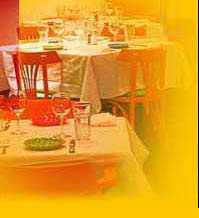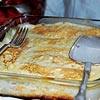


 An Artistic Winter Of Content
An Artistic Winter Of Content
Artist JEHANGIR SABAVALA and his wife, SHIRIN, have led a charming life full of travel, art, fine food, refined living, social grace and an appreciation of all things aesthetic, discovers SHERNAAZ ENGINEER All artists are blessed because in their work, everyday at the easel, they encounter eternity. Which is probably why, Jehangir Sabavala is so effortlessly ageless. The advantage of good genes only enhances the effect!
Their impromptu marriage in Paris, many moons ago, is still something they smile about. A few years later, when they returned to India, the traditional Parsi ceremonies were a mere formality that had to be undergone. They have spent many years abroad, and for Jehangir this was a journey that began when he was really young. "During my schooldays, I did four years in Switzerland. At that time my brother's health used to be rather
It was almost a foregone conclusion that the young Jehangir would follow his passion and turn painter, something very unusual for his times. While he was living and working in Paris, he married Shirin in 1948. They returned to India in 1951, with no clear idea of how long they would stay, not imagining back then that it would be for the rest of their lives! In the same year that he arrived, Jehangir held his first show of paintings at the Princess Room at the Taj Mahal Hotel and Shirin recalls how his sketches sold for anywhere between Rs. 25 and 75, while his painting fetched between Rs. 200 and 350, depending upon their size!
He is, understandably, overwhelmed by the reaction to contemporary Indian art in these frenzied, over-priced times, and notes how an American bought an artwork of his for Rs. 700 at his first show in New Delhi, and recently sold it for Rs. 70 lakh at an auction in America, where it was bought by a smallish gallery! Gratifyingly, being from the genteel old school of simplicity, the escalation in remuneration hasn't led to an arrogance or avariciousness of attitude. Earnestly he explains, "A painter has to work from inside himself. A painting generally takes him a month or more, and he likes to work with the same batch of colour because if he runs out then mixing the same exact shade is a harrowing process. He is oblivious of the intervention of technology in the meticulous manual process of creating his art with painstaking dedication in his studio. "Mine is an exacting, tedious profession," he adds. "There is tremendous hesitancy. You always wonder whether one painting is going to be as good as another. I am amazed when young painters tell me they finish a painting in four days!" To what degree have his travels influenced his art? Shirin concedes, "His prolonged exposure to European art has been a strong influence." But Jehangir counters, "I think my travels have influenced my work more subconsciously than consciously. But I would say my landscapes are largely Indian, and the emotions come from within. Where I live is, hence, incidental."
But his life isn't all work and no play. A confirmed bon vivant, he enjoys fine food and the good life. Rapid metabolism obviously takes care of any indulgences! But Shirin avers, "We are small eaters and Jehangir is very active. Besides, we try to eat healthy - less oil and that sort of thing." Shirin is, by her husband's enthusiastic estimation, a great hostess, who can get a good party going in their amazingly graceful home. The Sabavalas live with their daughter, Afrid, in an apartment abundant in antiquities and art. While Shirin confesses that she doesn't cook, she has been an avid recipe collector and imaginatively organises the menu. Their tastes veer more toward subtle flavours and continental cuisine. Although Jehangir reveals with some surprise, "I have suddenly developed a taste for spicy food. I find that with age, what I couldn't eat before I rather relish now!" Salmon is a special favourite, and he lets on that Shirin's cheese and bacon pancakes are exceptional, as is the prawn curry rice that she gets cooked, Mangalore-style, with lady fingers in it. She also does a mean rice mould, served with dahi kadi, that is reportedly divine. And the verdict is out that her chutney soufflé is truly her signature dish, featured in a gourmet cook book - no less! Jehangir adds, "Shirin makes a lot of desserts, she is good at rustling up puddings!" They eat one vegetarian meal a day, generally at lunch, although the good Parsi that Jehangir is, he has a penchant for eggs - which, in Parsi-style, become part and parcel of most meals!
"Shirin is a very caring hostess, and works much too hard," Jehangir smiles. He recounts a recent mishap when they had guests for drinks. One of their bearers - yes, they still have bearers who come in and serve - dropped a tray full of Shirin's precious Finnish glasses just as their guests had settled into their seats! "But she ensured the smooth flow of the evening and I marvelled at her savoir faire. I think a good hostess never burdens her guests with her disasters!" The Sabavalas have been at the homes of many memorable hostesses themselves, and particularly commend the late Lady Maki Bhiwandiwalla as a legend beyond her lunchtime! "She laid out a beautiful table with the most amazing home-cooked food. She was herself very stylish and well turned out," recalls Shirin. Jehangir believes that the two virtues every woman, and especially every hostess, ought epitomise are elegance and courtesy. "We have been at the tables of some really admirable hostesses in Europe, and they do it all by themselves - without the servants we are so accustomed to having in India!" he admiringly notes. Jehangir leads a disciplined day, despite his love of the good life. Regulated work and meals, with a fair focus on keeping himself fit. "I don't do too much, just some stretches to take the stiffness away," he grimaces. Shirin emphasises upon the importance of yoga. "Every major asana works on an endocrinal gland and your immune system gets boosted," she affirms. As we sit on their balcony, filled with plants and some very interesting large pebbles in bowls, dusk quietly slips into darkness and the twinkling lights of the city underneath enchant. Shirin has plied us with a sumptuous high tea. Jehangir gets ready to order a round of drinks. A bearer soft-footedly appears, as if on cue, but, alas, I cannot stay back and take a toast to one of India's most enduring and endearing artistic talents. I step out into a misty, early December evening, wishing him many winters of content. |

Home Page
 Jehangir, narrow-as-an-arrow and upright, not just literally but ideologically so in the shifty quagmire of contemporary Indian art, is perfectly complimented by his svelte wife, Shirin, an eternally youthful yoga teacher and disciple of the Bihar School.
Jehangir, narrow-as-an-arrow and upright, not just literally but ideologically so in the shifty quagmire of contemporary Indian art, is perfectly complimented by his svelte wife, Shirin, an eternally youthful yoga teacher and disciple of the Bihar School.  fragile and my mother decided it was wise to take us away into the Alps to help him recuperate in fresh mountain air. My father, Ardeshir Pestonji Sabavala, who was a barrister, stayed on in Bombay but visited us frequently. He later went on to become the Mayor of Bombay and was very active in politics. He held the civic interest of the city close to his heart. My mother, on the other hand, was a committed social worker and activist in the days when the term hadn't even been coined! She established the Swabal Stores, which was the first Parsi cooperative, as well as a blind school. In those days it wasn't fashionable for well placed ladies to act in the interest of the less privileged and, being from the famous Sir Cowasji Jehangir family, she fought social and peer pressure to reach out and do something for those who needed it most."
fragile and my mother decided it was wise to take us away into the Alps to help him recuperate in fresh mountain air. My father, Ardeshir Pestonji Sabavala, who was a barrister, stayed on in Bombay but visited us frequently. He later went on to become the Mayor of Bombay and was very active in politics. He held the civic interest of the city close to his heart. My mother, on the other hand, was a committed social worker and activist in the days when the term hadn't even been coined! She established the Swabal Stores, which was the first Parsi cooperative, as well as a blind school. In those days it wasn't fashionable for well placed ladies to act in the interest of the less privileged and, being from the famous Sir Cowasji Jehangir family, she fought social and peer pressure to reach out and do something for those who needed it most."  She was also a devoted mother, who brought all of her refinement and aesthetic finesse into the upbringing of her boys. Jehangir recalls, "As young children we travelled a lot through Germany, France, England and Italy, and my mother had a passion for museums so we would always be dragged along. Today, I realise what a good thing that was! One grew up accustomed to seeing great works of art. At that time it felt as if there was no escaping it! But later in life it stood me in good stead. By the time I grew up, museums and art galleries were a part of my life."
She was also a devoted mother, who brought all of her refinement and aesthetic finesse into the upbringing of her boys. Jehangir recalls, "As young children we travelled a lot through Germany, France, England and Italy, and my mother had a passion for museums so we would always be dragged along. Today, I realise what a good thing that was! One grew up accustomed to seeing great works of art. At that time it felt as if there was no escaping it! But later in life it stood me in good stead. By the time I grew up, museums and art galleries were a part of my life."  Jehangir says they were sort of up-and-down between India and Europe for several years until the sixties, spending a few months here, a few months there. "Then, we settled in Bombay and travelled only for travel's sake and not to live or work abroad."
Jehangir says they were sort of up-and-down between India and Europe for several years until the sixties, spending a few months here, a few months there. "Then, we settled in Bombay and travelled only for travel's sake and not to live or work abroad."  You have to struggle to bring your art out and give it expression. Your life, the thoughts you internalise, that is the process that you are working out through your paintings. It's very hard work and nothing comes easy. And, I find that as I grow older, it only gets more difficult, probably because I am demanding much more of myself. It's a lonely process. Eight hours a day I lock myself in with my thoughts and I can't break that thread with distractions because I'll lose something very precious from my work."
You have to struggle to bring your art out and give it expression. Your life, the thoughts you internalise, that is the process that you are working out through your paintings. It's very hard work and nothing comes easy. And, I find that as I grow older, it only gets more difficult, probably because I am demanding much more of myself. It's a lonely process. Eight hours a day I lock myself in with my thoughts and I can't break that thread with distractions because I'll lose something very precious from my work."  Over time, he is experiencing the need for continuity. He explains, "As a young man, I went from one painting to the next with no connection between them. Now, there is a distinct connection. I have started working on series, almost like a book where one chapter takes you to the next."
Over time, he is experiencing the need for continuity. He explains, "As a young man, I went from one painting to the next with no connection between them. Now, there is a distinct connection. I have started working on series, almost like a book where one chapter takes you to the next."  "We used to entertain a lot," says Shirin, "although we have cut back a bit. But we still enjoy having people over. I like to keep the group homogenous, but a little mixed so that it isn't too inbred. Jehangir and I think it out, so that our guests have a good time."
"We used to entertain a lot," says Shirin, "although we have cut back a bit. But we still enjoy having people over. I like to keep the group homogenous, but a little mixed so that it isn't too inbred. Jehangir and I think it out, so that our guests have a good time."